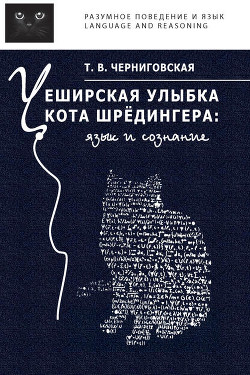Аннотация
Книга представляет собой серию исследований автора, начавшихся с сенсорной физиологии и постепенно перешедших в область нейронаук, лингвистики, психологии, искусственного интеллекта, семиотики и философии – теперь всё это называется когнитивными исследованиями и представляет собой пример конвергентного и трансдисциплинарого развития науки. Исходная гипотеза совпадает с названием одного из разделов книги – язык как интерфейс между мозгом, сознанием и миром, и это отражает позицию автора и его взгляд на эволюцию и природу вербального языка и других высших функций, их фило- и онтогенез, на генетические и кросс-культурные аспекты развития сознания и языка и их мозговых коррелятов, на возможности межвидовой коммуникации и моделирования человеческих когнитивных процессов. Книга рассчитана на интеллектуального читателя, интересующегося природой человека и его местом в мире.
This series of author's research aims to shed more light on the biological foundations of human cognitive abilities – primarily on language and mind. Starting from sensory physiology it gradually moved to neuroscience, linguistics, psychology, artificial intelligence, semiotics and philosophy – all these currently forming cognitive studies and represent convergent trans-disciplinary trend inmodern science. The main idea of the book concurs with one of the chapter's title – language is an interface between brain, mind and the world. It depicts author's position and understanding of language evolution and development, it's phylo- and ontogeny, genetic and cross-cultural basis of mind and language and their brain correlates. Accordingly, is also discusses possible cross-species communication and modeling human cognition. The book will appeal to scholars and students and to intellectual readers interested in specificity of humans and their position in the world.
3-е издание
















Отзывы